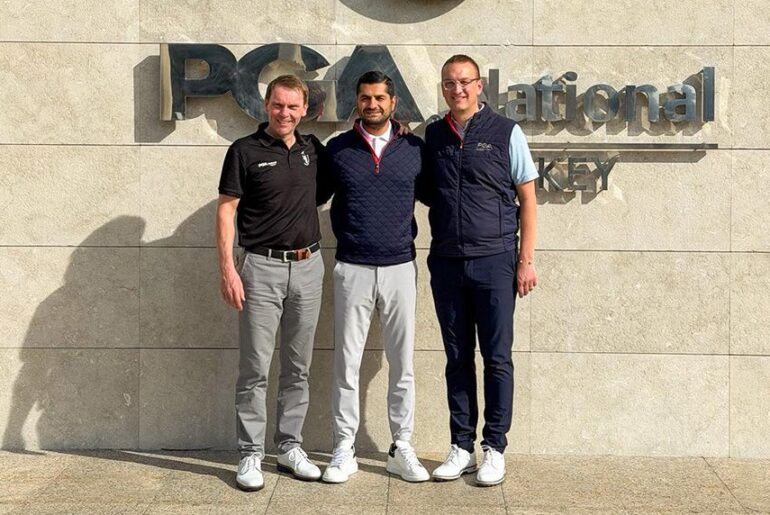
Scottsdale’s Joe Hooks, who aspires to play on the PGA Tour, said the APGA has been a great option to try and help him reach his goal. (Photo by Rey Del Rio/Getty Images)
PHOENIX — For generations, golf has been considered a sport that is exclusive to a select few. The Advocates Professional Golf Association is working to change that.
Founded 15 years ago, the APGA’s message has been clear — to inspire an inclusive future through the game of golf. The nonprofit’s mission isn’t necessarily to expand its bottom line, rather, it’s to grow the game and to provide an infrastructure to support minority golfers.
A field of 54 players converged on this week’s venue at TPC Scottsdale, where competitors began a 36-hole tournament Tuesday on the Champions Course for a chance to win a $25,000 purse. The tournament concluded its final round Thursday for the APGA’s fifth Cisco Cup event of the season.
Access to courses like TPC Scottsdale is essential to the organization’s success, said Solomon Hughes, the APGA’s chief operating officer.
“We want our guys to get to the highest levels of professional golf,” Hughes said. “And the way you get there is by creating environments that will be like what they’ll experience on the Korn Ferry or PGA Tour.”
Hughes also said that APGA golfers, much like life, come from all different backgrounds and experiences playing golf. Some have had a club in their hand their whole life, others picked the sport up more recently, and some are completely self-taught.
Minority participation in golf is slowly improving, according to a 2024 study by the National Golf Foundation. Approximately 25% of the 28.1 million golfers who played on U.S. courses in 2024 were Black, Asian or Hispanic, the highest number ever recorded.
Joe Hooks, a Scottsdale local, was part of the pack that teed it up this week. Hooks, originally from Detroit, has spoken publicly about “the grind” that comes with being a professional golfer.
Hooks aspires to eventually play on the PGA Tour, but in the meantime, he said the APGA has been an indispensable proving ground for professional golfers looking to continue their careers at the highest level.
“It’s definitely helped me to continue getting tournament reps in, and it’s been awesome — it’s been a blessing,” Hooks said.
TPC Scottsdale is not generally known for its ease of accessibility. Tee times often skyrocket during the peak season (January through March) when players can expect to pay upwards of $500 to play on the stadium course.
This week, however, the PGA has opened its doors to the APGA, and guests can attend the tournament free of charge.
Hooks said having an APGA tournament on PGA grounds is evidence of the partnership between both organizations.
“It’s just a testament to the PGA Tour’s commitment to the mission of the APGA,” Hooks said. “They’re committed to doing what they can to get us out to the biggest stages.”
The tournament featured seven golfers who have advanced to the Final Qualifying for the 2025 U.S. Open: Jordan Bohannon, Christian Heavens, Michael Herrera, Troy Taylor II, Andrew Walker, Chase Johnson and Everett Whiten Jr.
Johnson secured a position as the first alternate for this year’s U.S. Open after a three-hole playoff in Columbus, Ohio, at Kinsale Golf & Fitness Club Monday.
Hughes said that although the APGA doesn’t garner as much attention as the PGA, the two organizations aren’t far apart in terms of the level of competition.
“Our guys are the real deal, they’re really good players,” Hughes said. “They can hang with the best of the best, they just need access, opportunity and resources to get there.”
The APGA also works to create pathways to success off the golf course as well, offering youth development opportunities and clinics, as well as workforce-focused programs which introduce their players and organization members to various other avenues of professional achievement.
Hughes hopes that the continued success of events like this week’s tournament will highlight the APGA’s work both on and off the course.
To Hughes, the APGA is “more than just scores on a scorecard.”






